I was born in 1923 and grew up in the Great Depression, from the end of World War I, 1918, to World War II, 1939, when reading was one of our main amusements. Whenever families and friends got together for a meal and ‘singsong’ around a piano, someone would play a harmonica, banjo-mandolin, or piano, to accompany singers. Father sometimes played his Hawaiian steel guitar in the evening, while we children played board games and mother did mending or read a book. By 1935 most homes had acquired ‘the wireless’, and people ‘tuned in’ to music, plays and the nine o’clock news. My grandmother was born in 1870, and she attended one of the free schools established the same year in London. In the late eighteen hundreds,‘Working Men’s’ Clubs held reading classes, cities had free libraries, and books were given as school prizes. My grandmother, and later on my mother, received books at Sunday school for reciting Bible passages. At Ipswich Girls Grammar School in 1939-40, I earned two book prizes and also began to love reading poetry. Reciting poetry from memory was a punishment set by senior prefects, for juniors who were caught breaking rules such as: no shouting, no running on school grounds, no rolling down of black stockings.
I date my fondness for books and their smell from 1929, when Uncle Tom gave me an illustrated ‘Coles Picture Book for Children’, for my sixth birthday. I would open up a book, sniff it well with a gusty sigh of pleasure, and be immersed into magical tales which often began ‘Once upon a time, long, long ago, in a land far away’… In late 1930, as my father was unemployed, we left our home in East Ipswich and, with my little brother, took the three-day train trip to Mount Isa. My grandmother was living in the Mines Camp with two of her sons. Another of her sons, Ben, had been killed in a mine cave-in, but despite the sadness, my seventh birthday was not forgotten. Uncle Bob gave me a ‘gold heart’ ring, to replace one lost down the toilet when I was train-sick on a trip with Grandma to Toowoomba to visit relatives. Uncle Tom gave me a colourfully illustrated book, ‘Alice’s Adventures in Wonderland’, by Lewis Carroll.
I was sitting on the front steps of our tent in the Mount Isa Camp one evening, quite engrossed in reading that book. Poor Alice was in an awful predicament, for her arms and legs had grown through the doors and windows of the white rabbit’s house. I failed to hear Mother telling me to come in for dinner, an important meal through all the years of the Great Depression. Returning to reality, and seeing the table had been cleared of food I was tearful, but after a scolding received my dinner, kept warm in the oven. In that hot,‘red heart’ desert township, out-door ovens, made from anthill by Chinese fossickers, cooked good English roasts and Yorkshire puddings. Mother often said that I went away to read only to avoid work. In ages thirteen through fifteen I liked best to climb into the huge mango tree in the backyard of our rented house in West Ipswich, settle down on a board, and hide amongst the dense leaves with a book.
My mother loved reading, and as a girl got into trouble at times for letting her candle burn down when reading in bed at night. When I was young, except for the three years spent in Mount Isa, we had electric lighting to read by. Telephones were very few, and messages came through the post office, written on telegrams delivered by boys on bicycles. Most men rode bicycles to work, there were two motorcars in our street, and only highways and main roads of towns were macadamed. Bakers, butchers and greengrocers made deliveries in horse-drawn carriages, rarely in vans. ‘Aeroplanes’ were identified as monoplanes or biplanes. Outdoor toilets were in most backyards, as were vegetable patches and chicken runs, and chicken wire supported climbing beans or passionfruit vines. Apart from the war years, life in the first part of the twentieth century was much quieter and slower-paced than it is in the twenty-first. Grandfather, a shoemaker, had died in 1915, but my grandmother still wore leather shoes and bags. In Ipswich she walked to the library on Saturday mornings for two ‘romance’ novels. In the winter months I thought that, dressed in her beaver coat and hat, she looked a lot like Mother Bear stepping out of the storybook ‘Goldilocks and the Three Bears’.
‘Cowboys and Indians’ was a ‘bush’ game much loved by boys, and with girls being Indians, or Annie Oakley, when allowed to take part. There were slingshots, toy guns, bows and arrows and a hullabaloo of ‘zing/wham/gotcha/you’re dead/you missed me’. From childhood my reading was eclectic, and sometimes this got me into trouble with my mother. All of those fast-action, stirringly romantic tales about the opening up of the vast ‘American West’ were popular with men and boys, and, along with my father and brother, I absorbed with enthusiasm all of the ‘Westerns’ in our Public Library. In later girlhood I empathised with Anne Shirley, heroine of ‘Anne of Green Gables’. I yearned to share her adventures, and be able to see all the scenes described by L.M. Montgomery. But I didn’t dream that a decade later I would visit that beautiful area of Canada, and live for two years in Maine. Many years after I read them, the ‘Anne’ books were brought delightfully to life for me, on cinema and television screens.
Five years of university studies stretched my mental acuity in my fifties, when I read English and European History and Literature, Modern Novel, German and Italian Language and post-graduate Religious Education. I could not like Thomas Hardy’s novels, but loved all of Jane Austin’s. As well as those of Mrs. Gaskell, Charles Dickens and Anthony Trollope, I studied other Victorians’ works, and have a collection of original Victorian ‘school prize’ books, in fair condition. In 1930, with my school class, I saw the black-and-white film of ‘The Old Curiosity Shop’, which horrified me. But in later years, through Dickens’ graphically descriptive writing, I gained insight into the stratification of society, and hardships then suffered by ‘the lower classes’. Film adaptations of Victorian novels, and series such as ‘Chronicles of Barsetshire’, brought characters and scenes vividly into reality for me. Also, I was transported into other dimensions of existence while watching the ‘Star Wars’, ‘Lord of the Rings’ and ‘Harry Potter’ series unfolding before me, on the cinema screen.
I enjoy having a television set, dvd player, computer and Internet access, and find these technological ‘fruits’ useful for learning and entertainment. But (and, there always seems to be a ‘but’ lurking to pounce on anything new) as the Internet grows increasingly attractive to children, its power to loom menacingly over them grows stronger. In time, those children overly preoccupied with gazing at television screens, ‘surfing the net’, or playing with Internet products too soon superseded, seem to lose some of the naivete essential for their wellbeing. With displays of books and set periods for reading, writing, grammar, and general English usage, primary and high school teachers and librarians work to promote literacy and reading. But, for general entertainment, television and Internet screens have largely assumed the place once held by books. With so many ‘Internet-wise’ young people reading computer screens instead of books, it is good to know that little children enjoy colorfully illustrated books, a few of which open with the words, ‘once upon a time, long, long ago…’
Subscribe to:
Post Comments (Atom)
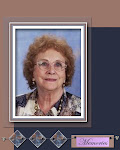


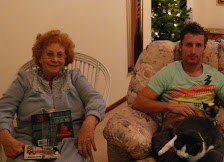
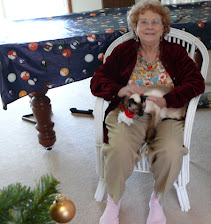
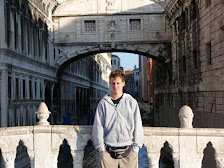
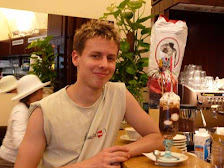
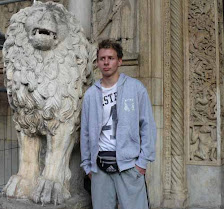
No comments:
Post a Comment